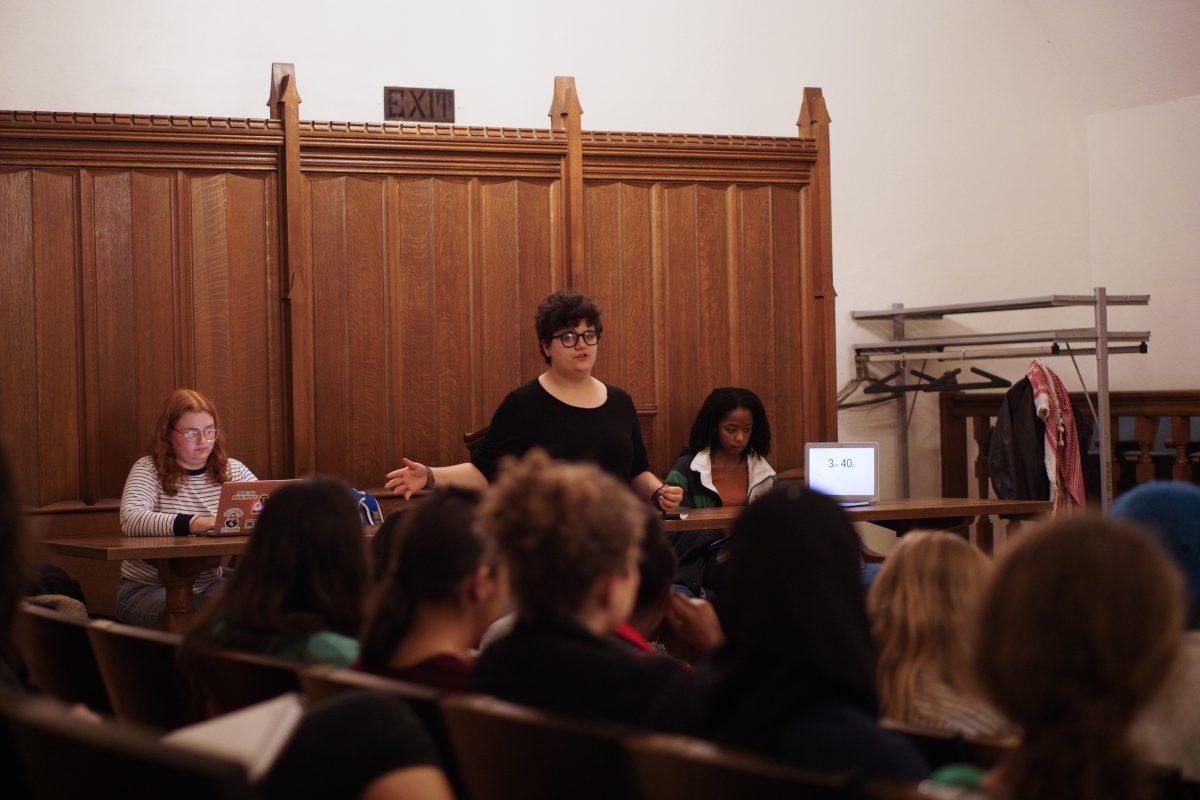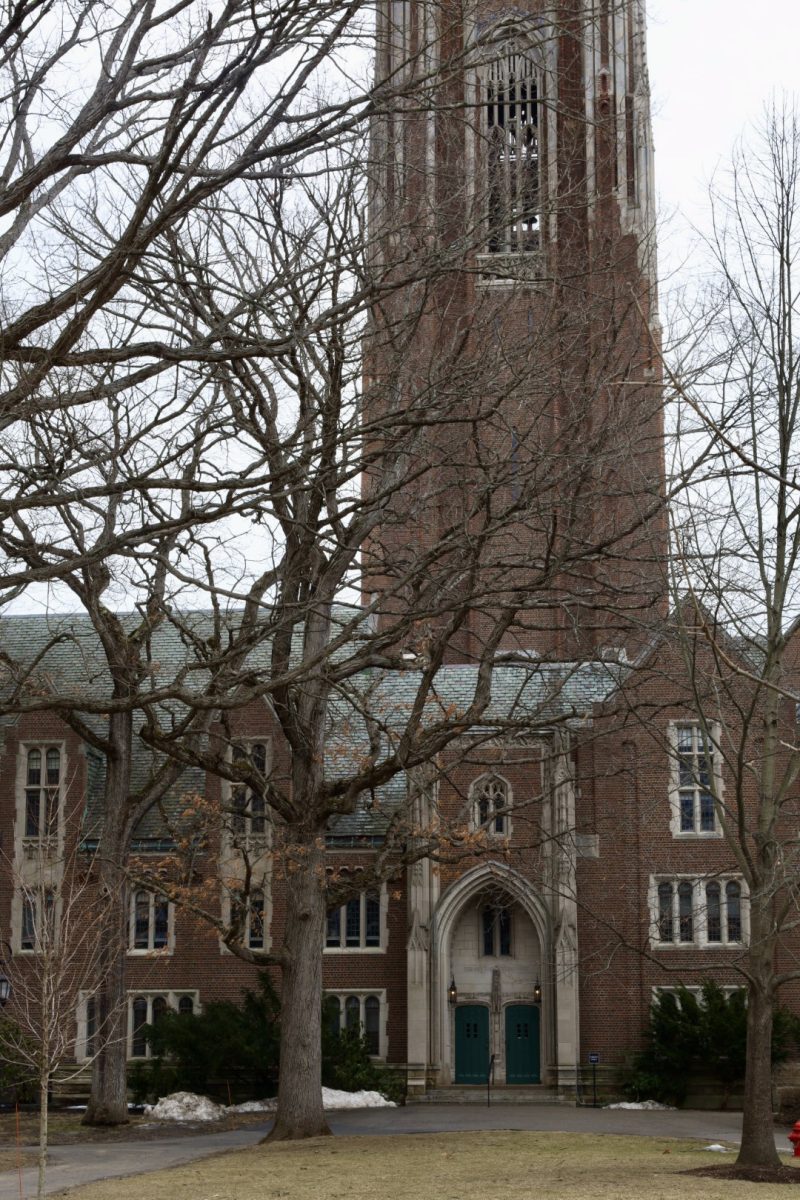On Oct. 30, a document titled “Establishing and Upholding Community Standards in Wellesley’s Orgs” was presented at Senate. The 10-page document, part of a student-led initiative to express concerns about “the glaring lack of institutional avenues through which to address issues of safety, harm and community values within organizations,” is intended to be used as a guideline for campus organizations to handle internal issues without immediately involving the administration. The standards confront issues the writers—Dina Al-Zu’bi ’19, Nina-Marie Amadeo ’18, Emily Boyk ’18, Marley Forest ’18, Lydia Guterman ’18, Maggie Hughes ’18, Emily Johnston ’18 and Suzanne Wang ’18—believe have arisen during their time at Wellesley. On Oct. 31, an email with a draft of the document was also sent to the president or primary contact person of each campus organization.
The document’s mission is “to ensure the safety of org members and to establish an effective community response to violations of community standards within organizations.” Campus organizations are expected to maintain safer spaces, which are defined in the document as being “free of the fear of emotion, physical or other violence … and is a healthy and nurturing space, rather than a destructive and stressful one.” Violations of safe spaces are defined as harassment, abuse, discrimination and violence.
The document then goes on to describe the community standards expected of organizations. These include the protection of safer spaces, transparency, inclusivity, communication, growth, attendance, participation, resources and support. In a statement made to The Wellesley News, the writers further clarified that “within orgs, violations against other Wellesley students and community members have happened in the past and will happen in the future. Our hope is that now, when org members encounter such issues, they can draw from this community standards document rather than start from scratch in thinking about how to best address these issues.”
The remainder of the document is dedicated to detailing suggested procedures if an organization encounters any community standard violations. The standards state that the process of handling violations is entirely within the jurisdiction of the organization.
The process of taking disciplinary action against a non-president involves a discussion of the charges being brought against them, an e-board discussion of complaints and consequences and finally a determination of the respondent’s membership in the organization, which is dependent on the reporter’s safety. The writers make sure to note that “this isn’t a trial; there will not be an investigation. The purpose of this process is not to press formal charges, collect evidence or determine if the event even happened, but rather the impact this charge has on the org/member.”
Whether or not the respondent remains in the organization, the person will be required to complete an educational task which could include a meeting with the organization’s president and faculty advisor, a community standards meeting with the e-board and a health educator or a recommendation to the Stone Center, the Office of Religious and Spiritual life, a peer health educator, a dean, or others.
The writers, in both the original document and their statement, affirm that the standards are not meant to be a new policy to which organizations must adhere, but rather “a resource for orgs to use—or not use—and modify as they see fit.”
The writers encourage students and organizations to adopt and adapt the standards to fit their needs. Sarah Yan ’20, co-social chair of the Asian Student Union (ASU), praised the student initiative, specifically noting that “if there’s [an issue] that is bothering a considerable amount of the population … then students should speak up about it.”
Carla Aguilar ’19, vice president of Mezcla, noted that guidelines for organizations, particularly cultural ones like Mezcla, are helpful because “issues of discrimination in our community, and on campus, hurt our members and leave our leaders feeling like they can’t always address each issue with the necessary attention.”
Likewise, Sarah Nwafor ’20, vice president of Sexual Assault Awareness for Everyone, generally supported the document, stating that “for a long time there were spaces—a kind of a gap—within orgs for situations of misconduct will be handled, and I think this is a very good document for different orgs to adapt as they need.”
Nwafor and Aguilar, though generally supportive of the standards, also expressed caveats. For Nwafor, the main issue is the lack of a means to enforce the document. The writers note that the standards are meant to be adapted to each organization’s needs and not as an enforced college-wide policy. Aguilar is concerned that placing the responsibilities listed in the standards on students is unreasonable. She said, “There is only so much as students we can do to provide for our community, and I think we should find a way to extend these policies to the greater Wellesley community so it’s understood that orgs shouldn’t be the only safe haven for students on campus.”
Some students, like Angela Coco ’19, president of the Wellesley Pre-Law Society, found that the presentation of the standards took away from the writers’ mission. Coco believes the document is presumptuous, and argued that the opening line—“This document was created in response to the glaring lack of institutional avenues”—is accusing, “especially when they [the writers] go on to suggest that most orgs don’t exercise basic empathy.” She continued to speculate that the document “seems more like a backhand to several specific orgs.”
When asked about the disciplinary action suggested by the standards, Coco stated: “It shouldn’t be possible for students to ‘kick’ other students off an org over perceived infractions to make-believe rules.”






